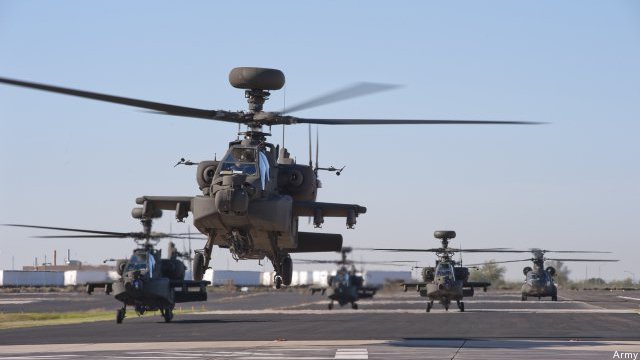HASC Gives Guard Half A Loaf; Will SASC Provide The Rest?
Posted on

WASHINGTON: This week, the House Armed Services Committee gave advocates for the Army National Guard about half of what they wanted. Next week, a staffer told me, the Senate Armed Services Committee may look at giving the Guard the other half. But because Guard backers have taken very different approaches in each chamber, it’ll be up to the House-Senate conference on the National Defense Authorization Act to put the two half-loaves together into the whole package the pro-Guard lobby wants – and the Guard has been disappointed by conferences before.
“This clearly is just the first foray in our battle to maintain the integrity of the our National Guard,” Maj. Gen. Edward Tonini, adjutant-general (i.e. state commander) of the Kentucky National Guard and head of the Adjutants-General Association of the US (AGAUS) wrote in en email. “The ultimate details will be resolved in conference.”
Tonini’s AGAUS and the powerful National Guard Association of the United States (NGAUS) want two things from Congress. First, they want legislators to create an independent commission to review the Pentagon’s proposed cuts to the Guard – the most controversial of which is transferring all the Guard’s AH-64 Apaches to the regular Army – and to offer an alternative plan. Second, until the commission reports back, they want Congress to ban the Pentagon from reorganizing or even preparing to reorganize the Guard in any way.
One bill in the House, H.R. 3930 sponsored by Rep. Joe Wilson with 199 co-sponsors, includes both these elements. What the HASC passed Tuesday night, however, was a watered-down version of Wilson’s language. The freeze on any reorganization is still there. But instead of a congressionally chartered blue-ribbon commission, the HASC NDAA just requires a Government Accountability Office (GAO) report, due less than a year from now on March 1, 2015, at which point the freeze would end.
“It’s a positive step,” NGAUS spokesman John Goheen told me when I asked about the HASC bill. “What we’re fighting for is an independent look at this, [and] what the HASC has come up with, in terms of a compromise, is in fact an independent look, it’s a step in the right direction.” But, I noted, the GAO puts out studies all the time, none of which has anywhere near the clout or mandate of an independent commission. “It’s still progress,” said Goheen.
Half a loaf is a lot better than none, said former NGAUS legislative director Bill Skipper, now a consultant. “The leadership of the House more or less said a month ago there wasn’t going to be any kind of language on this subject, they’ve had to give — give just enough for the Senate to be able to pick it up in conference,” he said. “This is textbook Politics 101.”
“I personally prefer an independent commission,” Tonini told me, but the GAO could do a good job if it consults the right people: governors and state adjutants-general like himself, not just the Army and National Guard Bureau leadership in the Pentagon. “We could have either or both in the end…. they should both come to the same conclusion.”
On the other side of Capitol Hill, Senate National Guard Caucus chairman Sen. Patrick Leahy has introduced a bill that would create an independent commission. The president would appoint half its members, Congress the other half, and the commission would have almost two years – until February 1, 2016 – to study the matter. It’s this language that Leahy’s Guard Caucus co-chair, Senate Armed Services Committee member Sen. Lindsey Graham, may offer as an amendment to SASC’s version of the annual defense policy bill.
But the Leahy-Graham language does not include a total freeze on reorganization. To the contrary, it authorizes the military “to prepare for the transfer of not more than 72” of the Guard’s Apaches – almost half – to regular active-duty units. (The Defense Secretary must make various pro-forma certifications first). Since the Pentagon never planned to make the actual transfers until 2016 anyway, authorization to do prep work is all they need in the 2015 bill.
What Guard advocates presumably hope is that the NDAA conference will keep the independent commission from the Senate language but strip out the authorization to prepare for transferring aircraft. What they fear is that the conference will keep the Senate language on transfers but drop the independent commission, going with the HASC’s GAO report instead. What they’ll actually get is an open question.
Subscribe to our newsletter
Promotions, new products and sales. Directly to your inbox.
